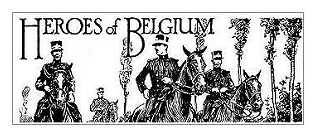 The Interior Ministry denied on Friday that escaped Turkish militant Fehriye Erdal could not have been arrested prior to her conviction earlier this week. The ministry said she could neither be arrested based on police criminal law or immigration law, news agency Belga reported.
The Interior Ministry denied on Friday that escaped Turkish militant Fehriye Erdal could not have been arrested prior to her conviction earlier this week. The ministry said she could neither be arrested based on police criminal law or immigration law, news agency Belga reported.The denial comes after the opposition Christian Democrat CD&V claimed that Erdal could have been arrested during her trial. It said the arrest could have been based on immigration law.
Meanwhile, questions have also been raised about claims from Interior Minister Patrick Dewael on Thursday that the security service VS-SE did not anticipate that Erdal would flee. Flemish broadcaster VRT claims it has since obtained documents indicating that the possibility that Erdal would flee was discussed at a crisis government meeting. A decision was then taken to place Erdal under surveillance for 24-hours a day in the lead up to Tuesday's ruling, a ruling in which she was sentenced to four years jail for links to the Turkish militant group DHKP-C. However, Erdal had already disappeared on Monday night despite the Belgian security service's surveillance
| also |
Amid the controversy around the disappearance of Fehriye Erdal, it has been alleged that the federal security service VS-SE and police could not agree on the best manner to keep the Turkish militant under surveillance.
| Jugging her would have worked. |
Erdal disappeared on Monday night prior to her conviction for links to a criminal group. She and six other members of the Turkish militant group DHKP-C were jailed for four to six years for possession of weapons and forged documents. The government's anti-terrorist unit has since been placed on alert for possible attacks by the DHKP-C.
The alert was sparked by a communiqué from the DHKP-C information bureau in Brussels which referred to Brugge Court president Freddy Troch as an inquisitor. The communiqué also said the court case was "a carnival of bad taste presided over by a one-sided, partisan and warlike judge".
Belgium was also sharply criticised and the anti-terror group said the language used in the communiqué was very aggressive against the judge. Consequently, the DHKP-C will be placed under intense surveillance over the next few days.
| wow - a few DAYS??? Those Belgians sure are tough ... |
| too much hassle, overtime is bitch, union rules yada yada |
In light of the fact that Turkey's repeated requests for Erdal's extradition has in the past been refused, the security experts claim an abduction carried out by the Turkish security service MIT is possible. They also stress that an abduction was unlikely.
| If the Turks did it she'll never be found. |


 The two Belgians who were this week freed from US custody in Guantanamo Bay, Cuba have been charged in their home country with criminal activity, it emerged on Wednesday.
The two Belgians who were this week freed from US custody in Guantanamo Bay, Cuba have been charged in their home country with criminal activity, it emerged on Wednesday.